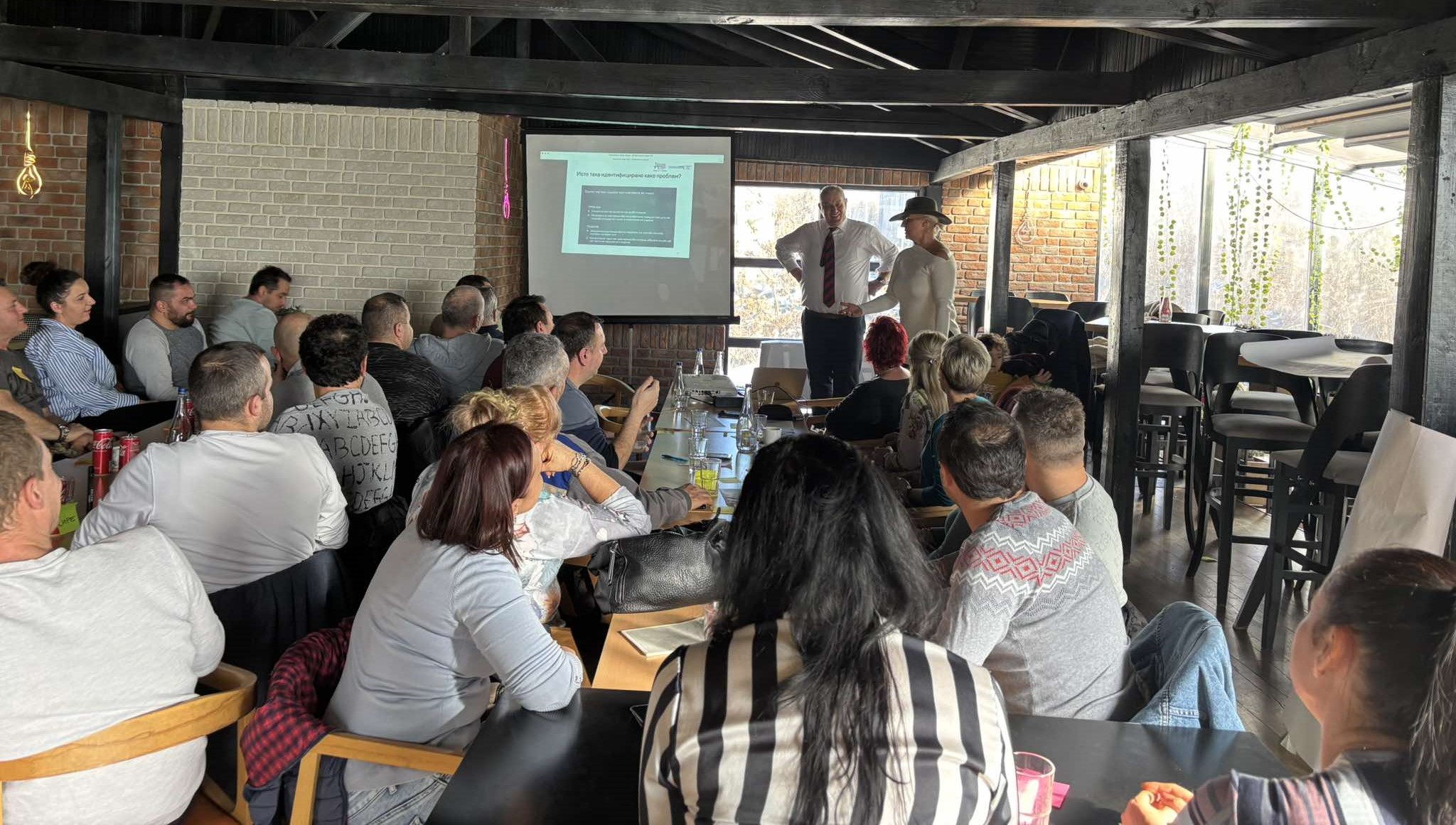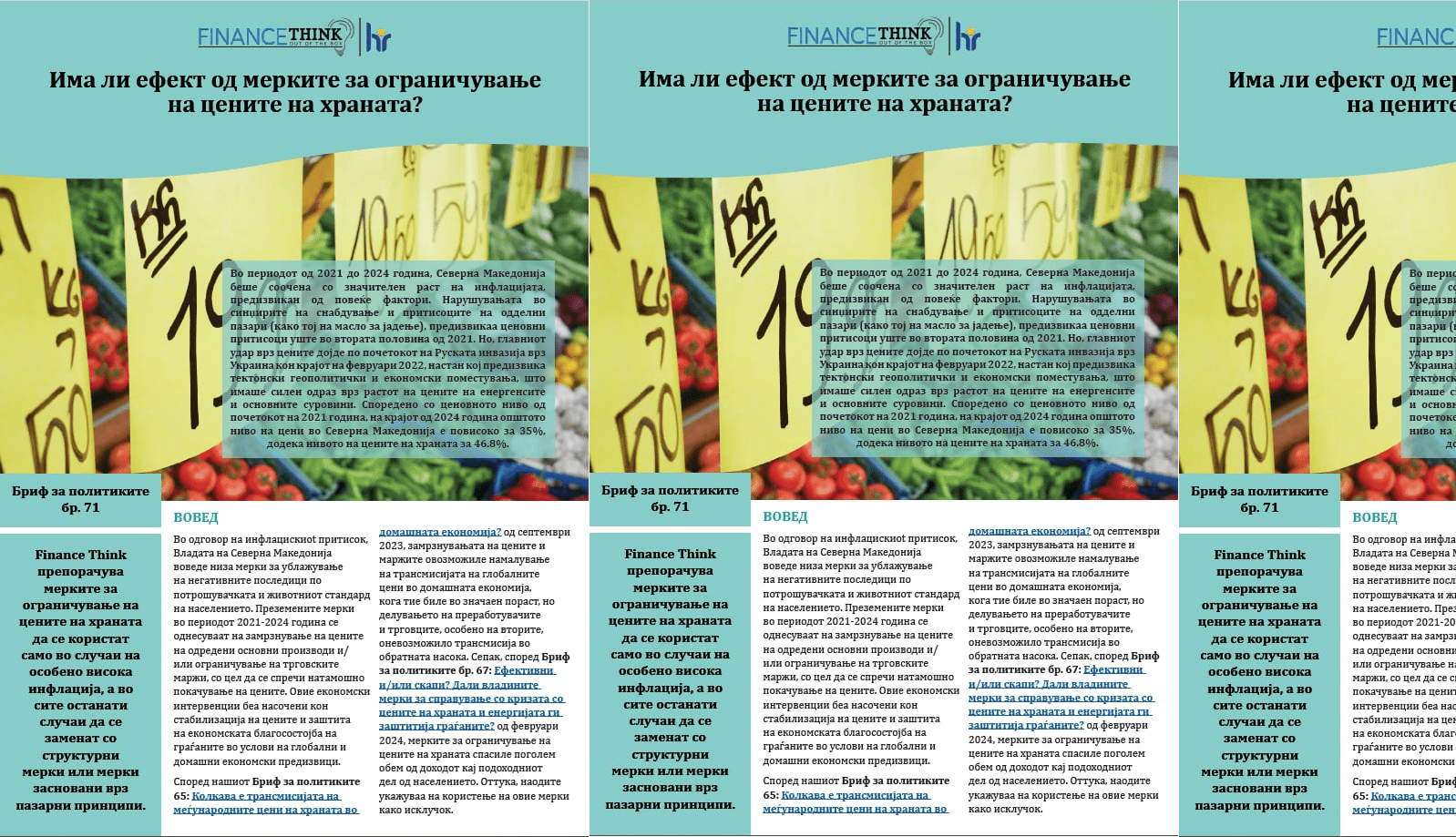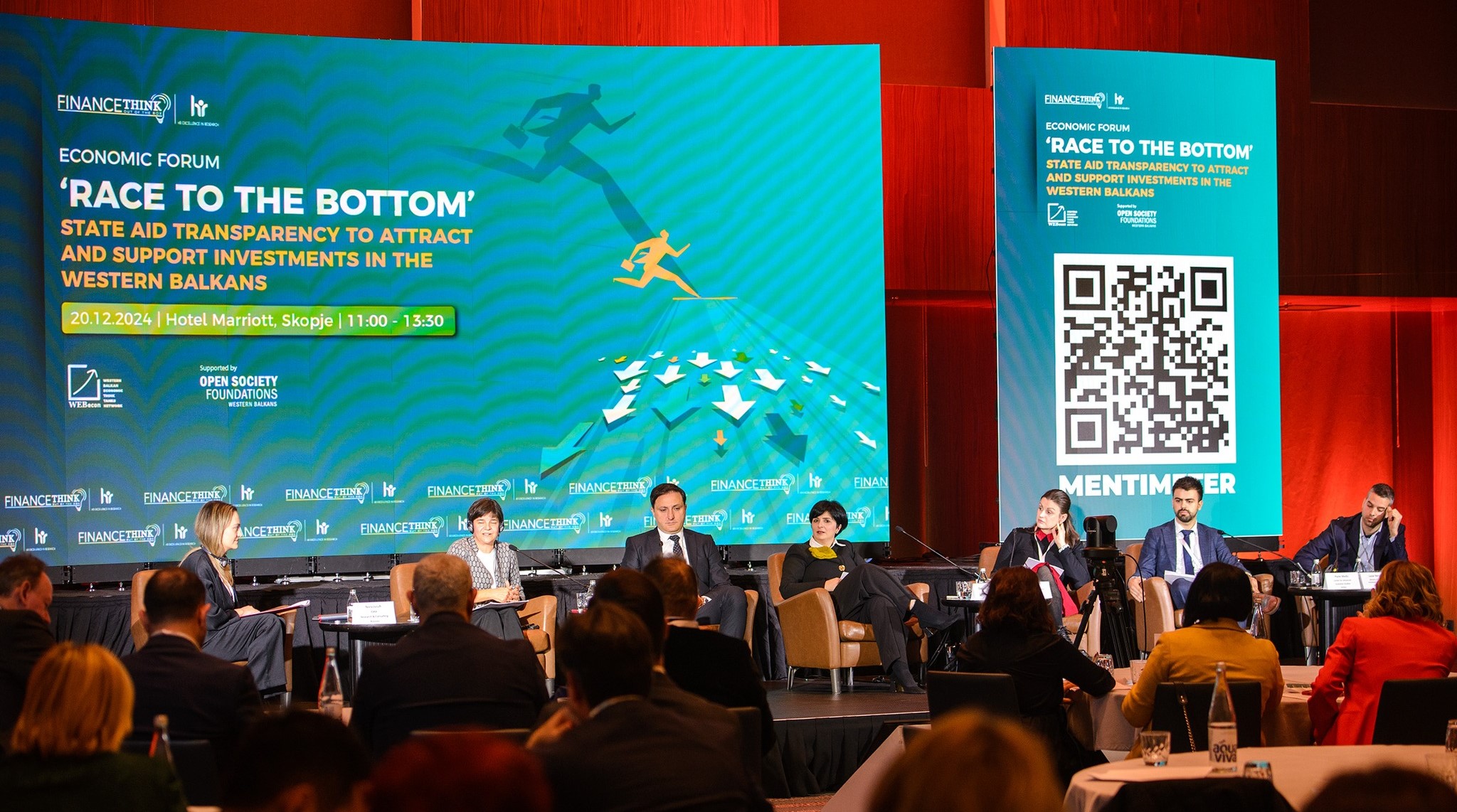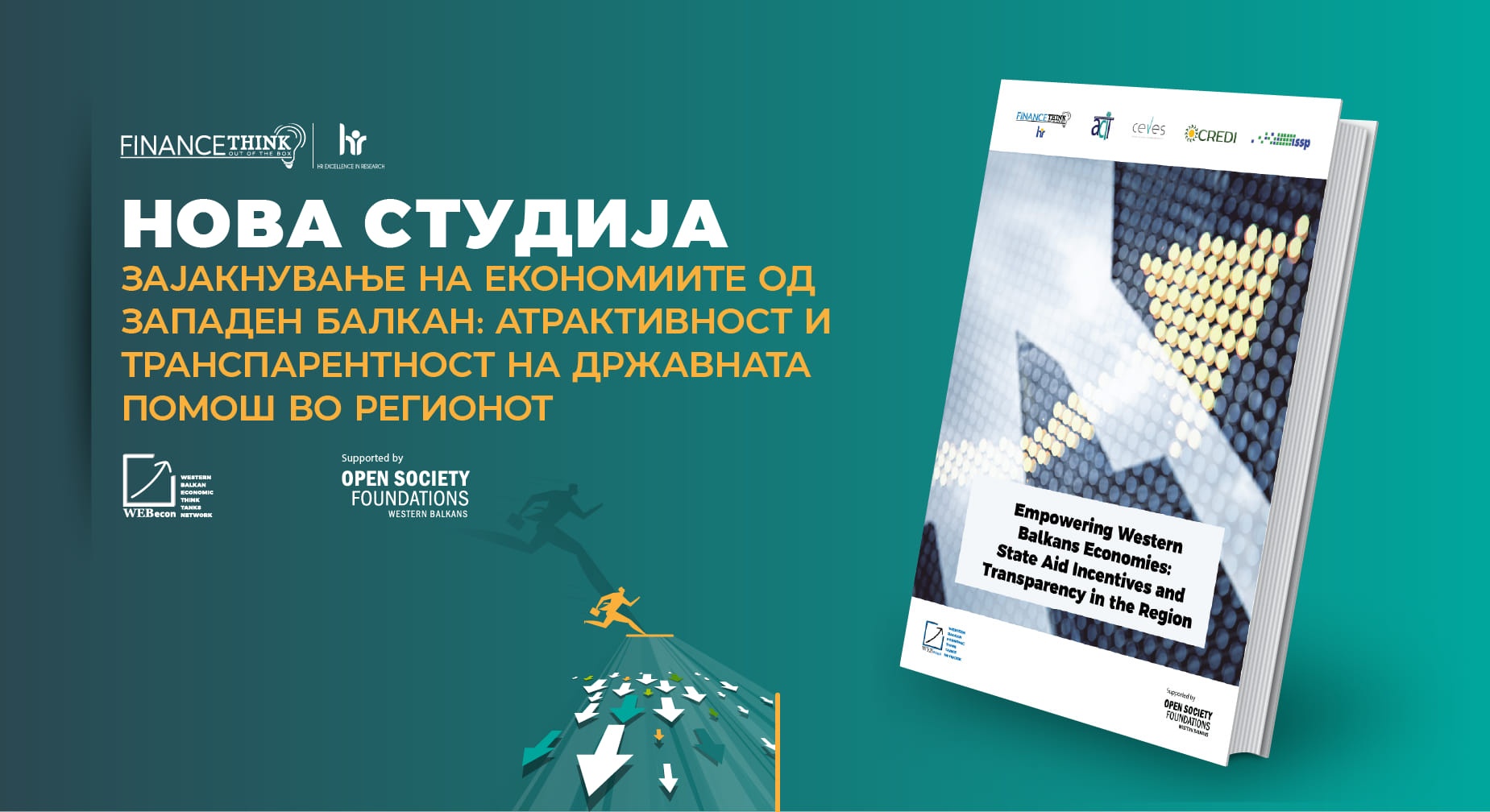Economists from WEBecon Network in the podcast “Where Is the Money?”
Boycott. Discontent. High Prices.
The region is protesting against rising store prices.
But is the crisis nearing its end, and are these just its final, delayed effects?
Has the region significantly impoverished over the past four years?
If a new crisis arises, will we be able to handle it?
Our economists from WEBecon Network provide answers to these pressing questions:
- Marija Basheska from Finance Think, North Macedonia
- Vojin Golubović from ISSP, Montenegro
- Lazar Ivanović from Centar za visoke ekonomske studije – CEVES, Serbia
- Amela Kurta from CREDI, Bosnia and Herzegovina
Tune in to the podcast “Where Is the Money?” with Goran Temenugov on Pari.com.mk.
In an Interview for Bloomberg Adria, Blagica Petreski speaks on current fiscal issues
Link.
Regional debate „After the energy crisis“
🗣 During the debate, we discussed how to become a more energy-resilient region, as well as the socio-economic implications of the green transition.
➡️ Stay tuned! In the coming period, we will organize another Regional Policy Debate, this time focusing on food security.
WEBecon Network SMART Balkans
🚀 The Program for Excellence and Personal Growth (PEPG) continues to thrive with success!
📅 On January 8, 2025, a group of mid-level managers from Comfy Angel attended a training session on improving workplace productivity.
👨🏫 The trainer for the session was Marjan Bojadziev, who shared critical tools and strategies for boosting productivity and managing conflicts in dynamic work environments, drawing on his expert advice and decades of experience.
#RandomizedControlledExperiment continues to be supported by the British Embassy Skopje. #WorkplaceProductivity #ProfessionalDevelopment #FinanceThink #ManagementTraining
Price and margin control measures stabilize inflation only in the first month, after which it returns
Between 2021 and 2024, North Macedonia faced significant inflation growth driven by multiple factors. Supply chain disruptions and pressures on specific markets (such as edible oil) caused price increases as early as the second half of 2021. However, the main price shock came after the Russian invasion of Ukraine at the end of February 2022, an event that triggered tectonic geopolitical and economic shifts, significantly impacting the prices of energy and essential raw materials. Compared to the price level at the beginning of 2021, by the end of 2024, the general price level in North Macedonia had increased by 35%, while food prices had risen by 46.8%.
In response to this inflationary pressure, the Government introduced a series of measures to mitigate the negative impacts on consumption and the living standards of the population. Between 2021 and 2024, measures included freezing the prices of certain basic products and/or limiting trade margins to prevent further price increases. A total of nine key decisions were made by December 2024, three of which targeted margin limitations, while the others focused on price controls. Some measures applied to specific food products, while others covered a broader range of food items.
The findings of the analysis show that price control measures for food had a mild aggregate effect and a strong immediate effect. During periods without such measures, the average month-on-month food inflation rate was 0.5%. Under these measures, food inflation averaged as low as -1%, indicating that food prices decreased during the intervention. Thus, the estimated effect is relatively significant. However, this effect diminishes after the first month of implementation (if the measure lasted longer than one month). This indicates that while the measures achieve their strongest expected effect on reducing food prices in the first month, the impact quickly weakens, likely due to market adjustments (e.g., rising prices of alternative products not covered by the measures).
Another finding suggests that price control measures only temporarily suppress inflation, as prices tend to increase again once the measure expires. Inflation returns almost entirely to its pre-measure dynamics, without evidence of overshooting.
Finance Think recommends that food price control measures be used only in cases of exceptionally high inflation. In all other situations, they should be replaced with structural or market-based measures, such as:
- Consistent and impartial enforcement of the Law on Unfair Trading Practices.
- Strengthening the capacity and tools of the Commission for Protection of Competition.
- Overhauling the agricultural subsidies system to increase domestic production.
- Targeted budget support for the most vulnerable segments of the population.
Read our latest 📖 Policy Brief 7⃣1⃣
Our latest 📖 Policy Brief 7⃣1⃣ answers the question: Do government #measures to limit food prices have an effect ⁉
1️⃣ Measures to limit food prices have a strong effect only in the first month of implementation, reducing inflation by up to -1%! 📉
2️⃣ After the first month, the effect dissipates due to market adjustments, such as increases in the prices of alternative products. ⚖️
3️⃣ Inflation returns to its previous dynamics immediately after the measures are lifted, but there is no overshooting. 🔄
4️⃣ Finance Think recommends using such measures only during periods of very high inflation. In other cases, structural and market-based measures are needed. 🛠️
🖇 Full brief: shorturl.at/KApmC
#Inflation #Prices #TemporaryEffect #FinanceThink
🎄Finance Think Wishes You a Happy New 2025!
Our Economic Forum effectively delivered key insights on state aid management
Link to gallery.
Transparency, Scope, and Targeting of State Aid in the Western Balkans: A Key to Growth?
Finance Think has published the study “Empowering Western Balkan Economies: Attractiveness and Transparency of State Aid in the Region.” The link to the full analysis is available here.
The goal of this study is to examine the types, amounts, and measures of state aid provided by the governments of the six Western Balkan countries to domestic and foreign companies, aiming to foster innovation, technological advancement, productivity, and more.
State aid in the Western Balkan countries ranges from below 0.5% of GDP in Kosovo and Albania to 5.9% of GDP in Serbia (2022 data). North Macedonia allocates state aid amounting to 1.9% of GDP or €253 million (Figure 1).
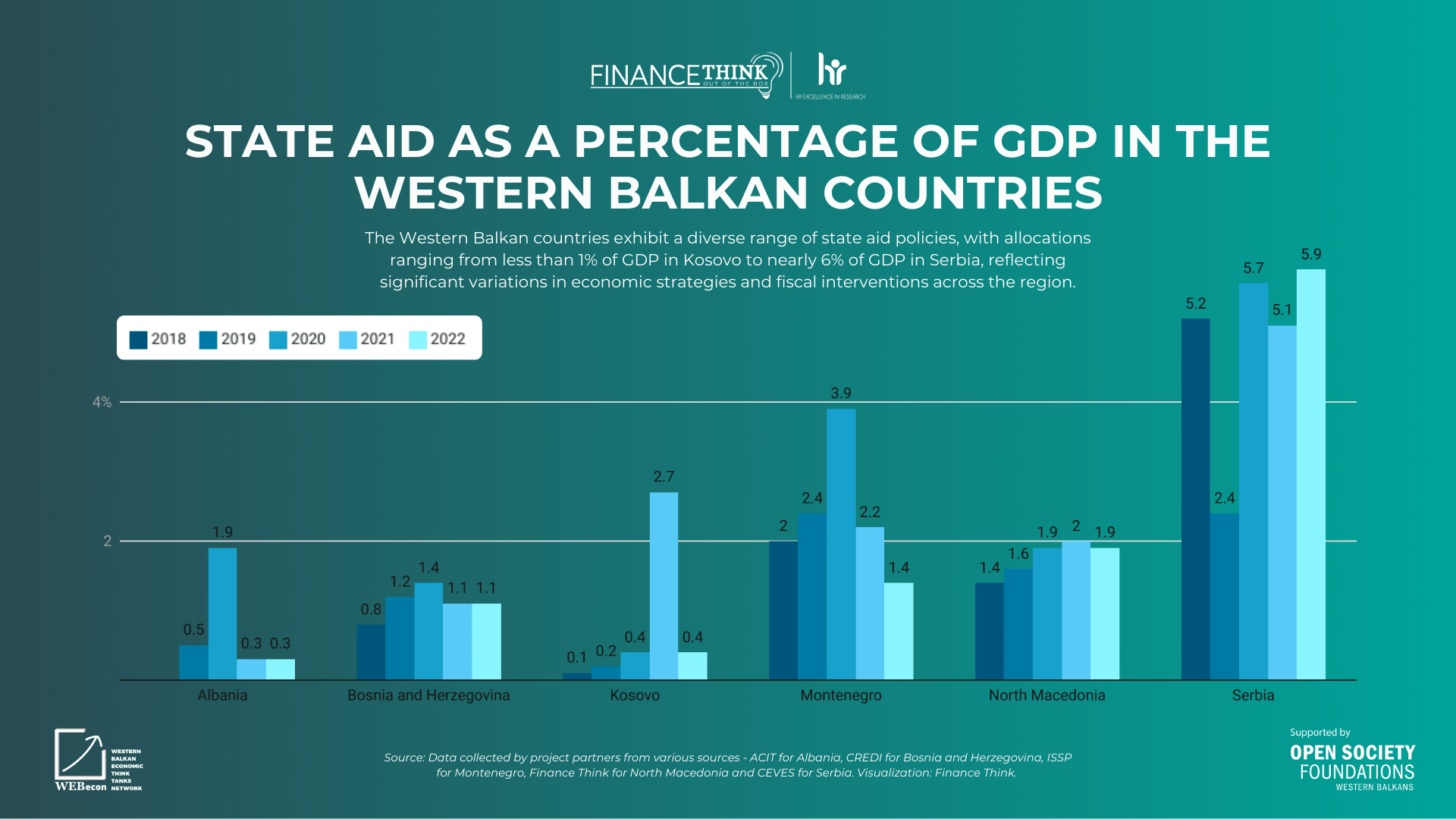
In general, all countries have numerous state aid measures targeting three segments: farmers, domestic companies, and foreign companies. To some extent, these measures are similar across the countries, especially those aimed at farmers and foreign companies operating in free economic zones. Low transparency and lack of information regarding the measures and the amounts of allocated aid are additional commonalities among the analyzed countries.
More specifically, the results show that state aid allocated to farmers accounts for more than half of the total state aid in four countries (Kosovo, Bosnia and Herzegovina, Montenegro, and North Macedonia). On the other hand, this aid cannot be linked to increased agricultural and livestock production, suggesting the need to reassess the purpose, model, and distribution methods of such aid. For example, in North Macedonia, a significant reduction in livestock production aid has been observed over the past two years, while meat production has consistently increased. Although aid for plant production support varies from year to year, vegetable production remains relatively stable.
State aid targeting domestic companies varies between countries, particularly in terms of the sectors being supported. More than half of the aid for domestic companies in Albania is directed toward manufacturing and tourism. Serbia is the only country allocating a larger portion of state aid to the development of small and medium-sized enterprises. In North Macedonia, over 90% of the aid is allocated across all sectors, with the remainder targeting manufacturing, energy, and tourism. Similar trends are observed in Bosnia and Herzegovina and Kosovo.
State aid should not function as a form of social assistance for companies. It should lead to increased productivity, innovation, competitiveness, job creation, and technological development for both the recipient company and the economy as a whole. An increased amount of state aid allocated to innovation correlates with an improved ranking of the Macedonian economy in the Global Innovation Index. The introduction of aid for new start-ups and spin-off companies is associated with an increased number of newly established companies. On the other hand, despite the continuous increase in aid for new employment, training, and employee specialization, labor productivity in the country has not improved.
All Western Balkan countries, except Kosovo, offer a wide range of attractive measures to attract and support foreign investors. The state aid scheme for foreign investors in North Macedonia is rated the most transparent, straightforward, and attractive compared to other countries. All foreign companies, regardless of location, can utilize the measures outlined in the Law on Financial Support of Investments, which, according to the analysis, account for two-thirds of state aid allocated to foreign investors. For the other analyzed countries, data on aid for foreign investors is incomplete (Serbia and Albania) or non-existent (Bosnia and Herzegovina and Montenegro), highlighting the need for increased transparency among the institutions responsible for managing and overseeing this type of aid.
The recommendations from the analysis are focused on three segments:
- Improving regional cooperation to align state aid policies, enabling a more integrated market that can attract cross-border investments and stimulate regional development. This can be achieved through joint initiatives, sharing best practices, and creating regional funds addressing common challenges.
- Focusing state aid on strategic sectors by promoting innovation, digitalization, and sustainability. In the future, aid should target sectors such as green technologies, renewable energy, and digital infrastructure, positioning the countries as competitive players in the global market.
- Enhancing transparency and accountability of relevant institutions by introducing more robust mechanisms for monitoring and reporting the types and amounts of state aid allocated.





